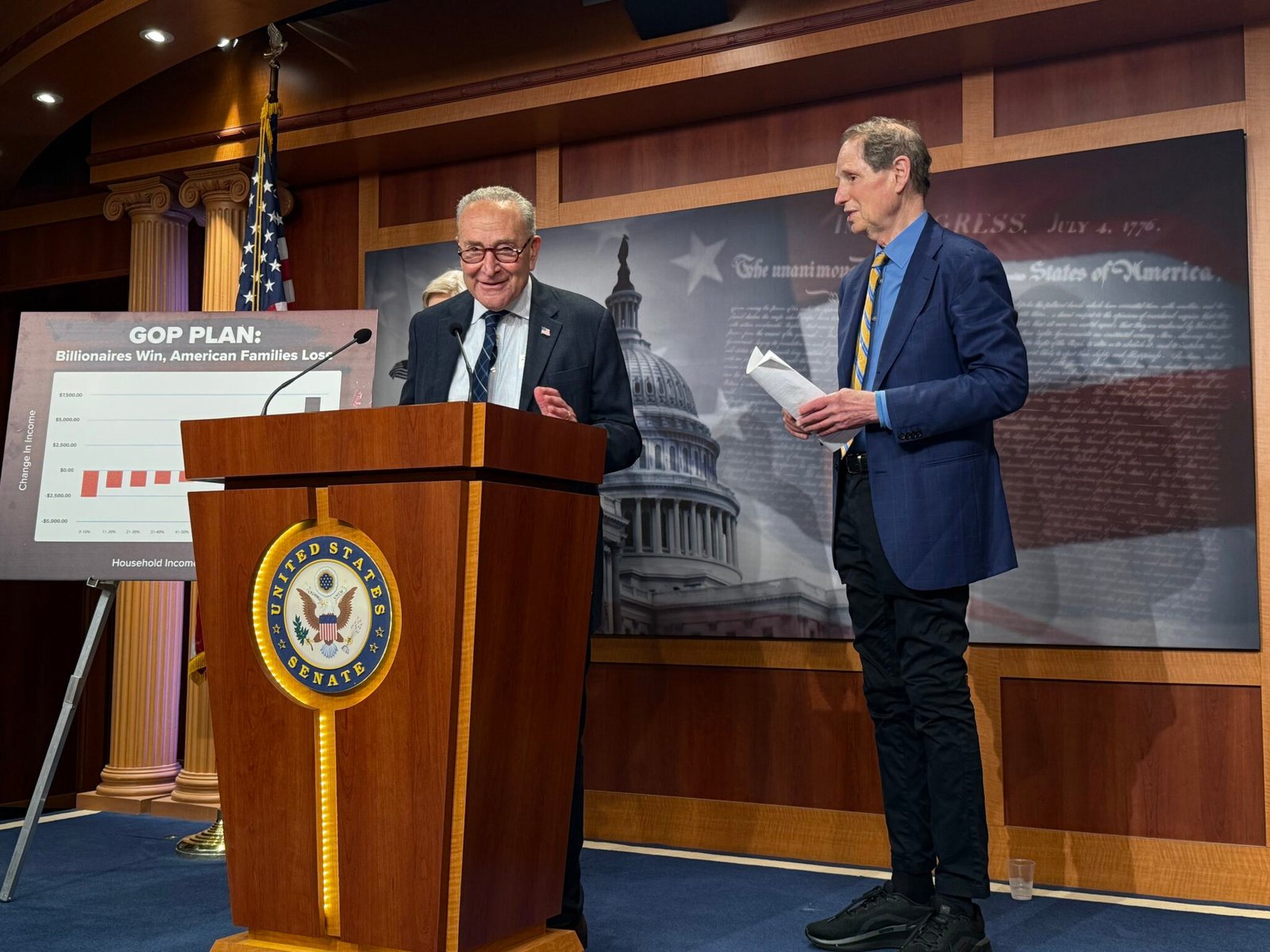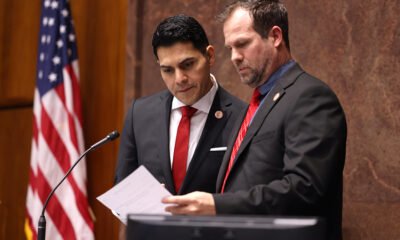budget
U.S. Senate Sets Stage for High-Stakes Mega-Bill Showdown

WASHINGTON — Republican leaders in the U.S. Senate are gearing up for a significant challenge as they prepare for a crucial voting session on their tax and spending cut measure. Dubbed the “vote-a-rama,” the session is anticipated to kick off during the last week of June, just before Congress takes its Fourth of July recess.
During this overnight voting marathon, senators will debate numerous amendments aimed at altering legislation that could impact nearly all Americans. With 53 Republicans and 47 Democrats in the chamber, the stakes are high. Senate Minority Leader Chuck Schumer has indicated that Democrats will focus on issues such as Medicaid, taxation, and policies believed to raise energy costs.
Senate Majority Leader John Thune, R-S.D., along with committee chairs, has been meticulously reviewing the House-passed bill to amend it in a manner that avoids contentious floor debates. This involves complying with the strict rules associated with the reconciliation process, a complex path designed to simplify passing significant legislation.
Concerns are already surfacing among GOP senators regarding the bill’s impact on rural hospitals. Missouri Republican Sen. Josh Hawley expressed the hope that consensus would be reached before the vote-a-rama but acknowledged he might propose his amendments if disagreements persist.
“Amending it on the floor, that’s a potentially messy process,” Hawley said. “We must address the rural hospital issue.” Alabama Republican Sen. Tommy Tuberville also indicated his plans to propose amendments during the floor debate, although he withheld specific details.
Thune remains optimistic about reaching agreement on key provisions. “We have pre-litigated a lot of that,” Thune noted, referring to ongoing negotiations among party members to finalize a comprehensive package. The reconciliation process allows Republicans to pass the legislation with a simple majority by adhering to the Byrd rules, which determine how amendments affect federal revenue.
Once assessed by the Senate parliamentarian, compliant features will move forward for voting, while non-compliant elements will be stripped away. This could lead to significant changes, as lawmakers seek to refine the bill before a vote-a-rama ensues.
Democrats are strategizing to highlight rifts within the Republican ranks during this session, potentially framing divided votes as campaign material for the upcoming midterm elections. Schumer mentioned that despite the difficulty of swaying GOP senators, a collaborative approach could yield mutually beneficial amendments.
Some Republican senators, like Shelley Moore Capito, have stated they welcome the vote, viewing it as an opportunity for open dialogue. Meanwhile, others, such as Ron Johnson, are skeptical about the effectiveness of amendments made during the session, viewing them more as performative than substantive changes.
The Senate has faced challenges in previous vote-a-ramas this year, with limited amendments being adopted amid rigorous debates. Looking ahead, both parties will navigate a complex path as they prepare for this critical legislative showdown.
As preparations continue, some senators are busy holding town hall meetings, gauging public sentiment on the proposed revisions. The dynamic atmosphere in Washington sets the stage for a potentially transformative vote that could shape the future of American fiscal policy.


















